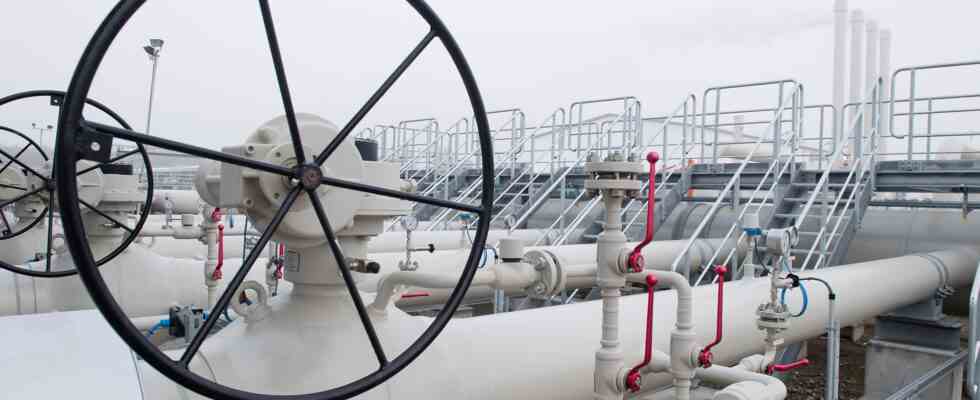Status: 06/24/2022 12:28 p.m
Impending bottlenecks in the gas supply weigh on the mood in the executive floors of German companies. After two increases in a row, the ifo business climate index unexpectedly fell significantly in June.
The mood in the German economy deteriorated noticeably in June due to concerns about the energy supply. The ifo business climate fell by 0.7 points to 92.3 points in a monthly comparison, as the Munich Economic Research Institute announced today. Most recently, the index had risen twice in a row. Experts had expected a slowdown, but only with a slight minus.
“Rising energy prices and the threat of gas shortages are causing great concern for the German economy,” said ifo President Clemens Fuest. Just yesterday, the federal government declared the alarm level in the gas emergency plan because of the sharp reduction in gas supplies from Russia. Economists warn of significant consequences for the German economy should Russian gas supplies fail completely.
chemical industry particularly concerned
The executives were more skeptical than before about their current business situation and prospects. The mood in industry and retail is particularly gloomy. “The chemical industry in particular is extremely concerned,” said Fuest. In chemistry, the use of gas is of great importance. Wholesalers and retailers are also “extremely worried” about the coming months. The service providers and the construction industry, on the other hand, were somewhat more confident. “Hospitality is having a good summer.”
Despite concerns about a possible gas bottleneck, experts at the Munich institute are not expecting an immediate economic downturn. “Despite increased uncertainty, there are no signs of a recession at the moment,” said ifo expert Klaus Wohlrabe. However, companies have to be prepared for a weak second half of the year. “We continue to have very difficult conditions for the economy and assume that the trend in the coming months will be downwards,” emphasized LBBW economist Jens-Oliver Niklasch.
For example, the Russian invasion of Ukraine is causing rising raw material prices, increasing delivery bottlenecks and heightened uncertainty among companies and consumers. The ifo Institute therefore recently lowered its forecast for growth in the German economy this year – from 3.1 to 2.5 percent. In the coming year, growth is then expected to accelerate to 3.7 percent.
Rate hikes threaten to stall the economy
However, economists fear a severe recession in the winter if there are no Russian gas deliveries. “The situation on the gas market is threatening,” said government adviser and economics expert Jens Südekum. “Then there is a threat of rationing of gas supplies and thus production stops in the industry. A severe recession could be the result.”
Jörg Krämer, chief economist at Commerzbank, was also pessimistic. “In fact, the economic situation is unstable.” A further reduction in Russian gas supplies could lead to gas rationing in industry with serious consequences. And the massive rate hikes by the US Federal Reserve in the coming year could also trigger a recession. As a result, Commerzbank has reduced its growth forecast for Germany from 2.5 to 1.0 percent in the coming year. For this year, the economists of the money house continue to expect growth of 1.5 percent.
In view of the many economic problems, bank economists assessed the mood deterioration in the executive floors as moderate. “In view of an endangered energy supply, record-high inflation rates and disrupted production chains, it is astonishing that the mood in companies is staying at this level,” explained Ulrich Kater, chief economist at Dekabank. “The deterioration in expectations clearly shows that the main challenge for companies is the energy supply in the coming winter.”

